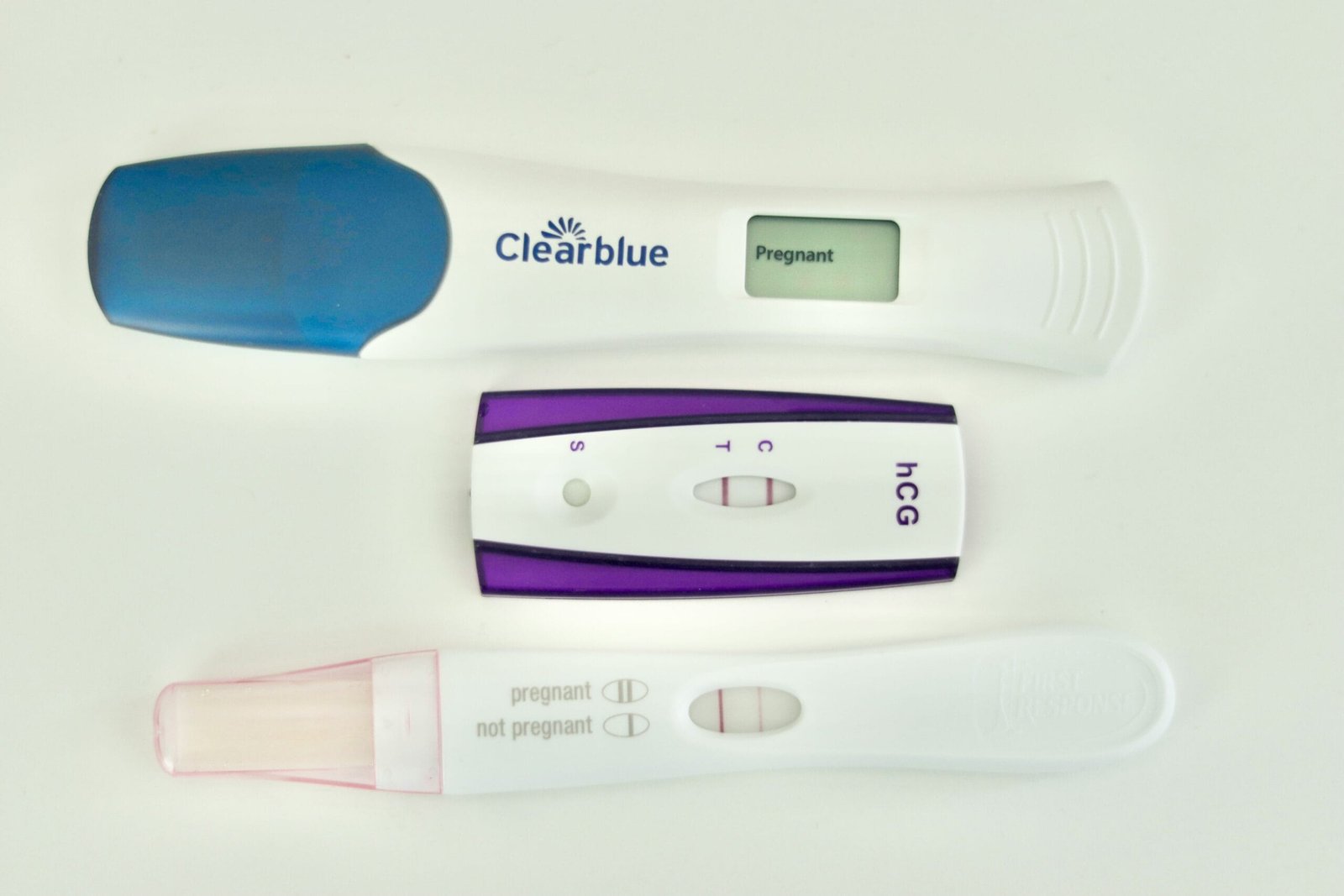Got a bun in the oven and a craving for a warm, comforting cuppa? We get it. But navigating the world of pregnancy safe teas can feel tricky. One minute you hear about the wonders of herbal tea pregnancy remedies, and the next you see warnings about teas to avoid during pregnancy.
Don’t put the kettle down just yet! We’re here to spill the tea (pun intended) on what’s safe to sip. Whether you’re looking for the best teas for pregnancy nausea or just need a soothing drink, we’ll guide you to the safe teas during pregnancy. Let’s brew up some peace of mind.
What Makes a Tea Pregnancy Safe?
Figuring out what makes a tea “pregnancy safe” can feel like decoding a secret language. But it’s simpler than you think! It all comes down to what’s inside the tea bag. Let’s break down what you need to know to choose the best sips for you and your baby.
Understanding Herbal vs. Non Herbal Teas
First up, not all teas are created equal. Non herbal teas, like black, green, and oolong, come from the leaves of the Camellia sinensis plant and contain caffeine. Think of them as the classic, energizing brews.
Herbal teas, on the other hand, are a different story. They are made from a mix of roots, flowers, seeds, and leaves from various other plants. While many are caffeine free, the world of herbal tea pregnancy safety is a bit of a gray area because the effects of many herbs haven’t been studied on pregnant women.
The Role of Caffeine in Pregnancy
When you’re pregnant, caffeine is something to keep an eye on. Experts recommend keeping your daily intake under 200 milligrams. That’s roughly two small cups of coffee. While a cup of black or green tea has less caffeine than coffee, it still adds up. Too much caffeine can affect your baby’s growth, so moderation is key.
How to Identify Safe Ingredients in Teas
The best way to find safe teas during pregnancy is to become a label detective. Look for single ingredient teas from trusted brands, like pure peppermint or ginger. Be cautious with blends that have a long list of herbs you don’t recognize. When in doubt, a quick chat with your doctor can give you the confidence to enjoy your cup of tea, worry free.
Which Teas Are Safe During Pregnancy?
Ready for the good news? You don’t have to give up tea entirely! Many delicious and comforting options are perfectly fine to enjoy. Here’s a look at some of the most popular pregnancy safe teas and what makes them a great choice for expecting moms.
Ginger Tea: Benefits and Precautions
If morning sickness is your unwelcome companion, ginger tea might just be your new best friend. This zesty brew is famous for its ability to soothe an upset stomach and ease nausea. While it’s one of the top choices for herbal tea pregnancy relief, a little goes a long way. Stick to one or two cups a day to reap the benefits without overdoing it.
Peppermint Tea: A Digestive Ally
Feeling bloated or gassy? Peppermint tea can help. Its cool, refreshing flavor is known to relax stomach muscles and aid digestion. It’s a wonderful caffeine free option to sip on after a meal.
Lemon Balm Tea: Calming Effects in Moderation
Pregnancy can bring on a new level of stress and sleepless nights. Lemon balm tea is a gentle, calming herb that can help you unwind. Just be sure to enjoy it in moderation and check with your doctor, as it’s best to be cautious with most herbs.
Green and Black Teas: Caffeine Considerations
You can still enjoy your classic green or black tea, but keep an eye on the caffeine. Limit yourself to one or two cups per day to stay under the recommended 200 mg caffeine limit, ensuring it remains one of the safe teas during pregnancy.
Fruit Infusion Teas: A Sugar Free Hydration Option
For a flavorful and worry free drink, turn to fruit infusion teas. Made from dried fruits, these are naturally caffeine free and a tasty way to stay hydrated without any added sugar.
Which Teas Should You Avoid While Pregnant?
Just as important as knowing which teas are safe is knowing which ones to steer clear of. Some seemingly innocent herbal teas can pose risks during pregnancy. Here are a few common teas to avoid during pregnancy to keep you and your baby safe.
Chamomile Tea: Risks of Preterm Labor
While often used for relaxation, chamomile tea is one to be cautious with. Some studies suggest that regular consumption, especially late in pregnancy, could be linked to a higher risk of preterm labor. It’s best to skip this one or have a chat with your doctor before sipping.
Nettle Tea: Hormonal and Uterine Effects
Nettle tea is another tricky one in the herbal tea pregnancy world. It can affect your hormones and may stimulate uterine contractions, which is something you want to avoid until it’s go time. It’s best to place nettle tea on the “no” list for now.
Raspberry Leaf Tea: When It’s Safe to Use
You may have heard friends talk about using raspberry leaf tea to prepare for labor. While it’s popular for toning the uterus, timing is everything. It is generally not recommended until the final weeks of pregnancy (around 32 weeks). Drinking it too early could cause contractions, so hold off until your doctor gives you the green light.
Detox and Weight Loss Teas: Why They’re Harmful
Steer clear of any teas marketed for detoxing or weight loss. These blends often contain a potent mix of herbs that aren’t studied for pregnancy and can have a laxative effect, leading to dehydration. When it comes to pregnancy-safe teas, these are a definite no go.
How Much Tea Can You Safely Drink During Pregnancy?
So, you’ve found some pregnancy safe teas, but now you’re wondering, “How much is too much?” It’s a great question! When it comes to enjoying tea during these special nine months, balance is everything. Let’s talk about finding that sweet spot so you can sip with confidence.
Understanding Caffeine Limits
First things first, let’s talk about caffeine. Most experts agree that limiting your daily caffeine intake to under 200 milligrams is the safest bet. That’s about one to two cups of black or green tea. Keeping an eye on this limit helps ensure your little one grows at a healthy pace.
Why Moderation Is Key
Even with caffeine free herbal teas, moderation is your best friend. The world of herbal tea pregnancy safety is not always black and white, as many herbs haven’t been extensively studied for their effects on expecting moms. Sticking to one or two cups a day is a smart way to enjoy the benefits without any potential risks.
Tips for Safe Tea Consumption
To make sure you’re only enjoying safe teas during pregnancy, here are a few simple tips:
- Read the labels: Stick to single ingredient teas from brands you trust.
- Brew it light: Steeping your tea for a shorter time can reduce its caffeine content.
- Listen to your body: If a certain tea doesn’t make you feel great, it’s best to skip it.
- Ask your doctor: A quick chat with your healthcare provider can clear up any confusion and give you peace of mind.
Benefits of Drinking Pregnancy Safe Teas
Choosing pregnancy safe teas isn’t just about avoiding risk; it’s also about embracing some wonderful benefits! The right cup of tea can be a comforting and helpful part of your pregnancy journey. Let’s explore some of the amazing perks of sipping safely.
Natural Remedies for Morning Sickness
One of the best known benefits of herbal tea pregnancy options is their power to combat morning sickness. Teas like ginger are celebrated for settling a queasy stomach and easing nausea, offering a natural way to find relief when you need it most. It’s a gentle remedy that can make those early weeks much more manageable.
Hydration Without Added Sugars
Staying hydrated is crucial during pregnancy, but drinking plain water all day can get a little boring. Fruit-infused and herbal teas are a fantastic way to mix things up. They provide flavor without the added sugars found in many juices and sodas, making hydration both delicious and healthy.
Immune Boosting Properties of Certain Teas
Some safe teas during pregnancy, like those with rose hips, are packed with vitamin C and can help give your immune system a little boost. A warm cup of tea can be a soothing way to support your body’s natural defenses, helping you stay healthy throughout your pregnancy.
Relaxation and Stress Relief
Let’s be real: pregnancy can be stressful. A warm, calming cup of tea, like lemon balm, can be the perfect way to unwind after a long day. Taking a few moments for yourself with a soothing brew can help ease anxiety and promote a sense of well being.
DIY Pregnancy Safe Tea Recipes
Why not try making your own pregnancy safe teas right at home? It’s a fun, easy way to know exactly what’s in your cup. These simple recipes are perfect for whipping up a comforting brew whenever you need one. Here are a few of our favorite DIY blends.
Ginger and Lemon Infusion
This is the ultimate duo for tackling morning sickness. Simply slice a few pieces of fresh ginger root and a wedge of lemon. Place them in a mug, pour hot water over them, and let them steep for about five minutes. The zesty flavor is both uplifting and incredibly soothing for a queasy tummy.
Peppermint and Honey Blend
For a gentle digestive aid after meals, try a peppermint and honey blend. Use fresh peppermint leaves or a store bought peppermint tea bag. Let it steep for 3-5 minutes, then stir in a small spoonful of honey for a touch of natural sweetness. This classic combination is a go to for herbal tea pregnancy comfort.
Calming Chamomile Alternatives
Since chamomile is on the “be cautious” list, you might be looking for a different way to unwind. Try a warm cup of milk with a dash of cinnamon or a hot water infusion with a slice of orange. These simple, caffeine free alternatives can provide that same cozy feeling and help you relax before bed, ensuring you’re only sipping safe teas during pregnancy.
Pregnancy Safe Tea Brands to Try
Navigating the tea aisle can be overwhelming, but knowing which brands to look for makes finding pregnancy safe teas a whole lot easier. When you’re shopping, keeping a few trusted names in mind can give you the confidence that you’re making a good choice for both you and your baby.
Trusted Brands for Pregnant Women
While many brands offer wonderful teas, some are particularly known for their quality ingredients and clear labeling. Brands like Earth Mama Organics, Traditional Medicinals, and Pink Stork specifically create blends for pregnant women, taking the guesswork out of your decision. You can also find reliable single ingredient options, like ginger or peppermint, from widely available brands such as Bigelow or Celestial Seasonings. These are great starting points when exploring the world of herbal tea pregnancy options.
What to Look for on Labels
Your best tool for finding safe teas during pregnancy is the ingredient label. Here’s what to look for:
- Single Ingredients: Teas with just one ingredient, like “peppermint leaves,” are often the safest bet.
- “Caffeine Free” Stamp: Always double check for a “caffeine free” label.
- Simple Formulas: Be wary of “proprietary blends” where you can’t see the exact herbs included. The simpler the ingredient list, the better.
By becoming a savvy label reader, you can feel secure in the teas you choose to enjoy.
FAQs
Can I Drink Tea in the First Trimester?
The first trimester can be a delicate time, so being extra careful is smart. Generally, most experts agree that drinking limited amounts of safe teas during pregnancy is fine in the first few months. However, many women choose to stick to plain ginger or peppermint tea and avoid more complex herbal blends until the second trimester. Since your baby is doing some serious growing right now, it’s always a good idea to double check with your doctor before starting any new herbal tea pregnancy routine.
What Are the Best Teas for Nausea Relief?
If you are battling the dreaded morning sickness beast, tea can be a lifesaver. Hands down, the winner for nausea relief is ginger tea. It’s famous for settling stomachs and curbing that queasy feeling. If ginger isn’t your jam, peppermint tea is a fantastic runner up. It helps relax your tummy muscles and can make you feel a whole lot better. Keeping a stash of these teas on hand is a pro move for surviving those early weeks!
Conclusion
Navigating the world of tea while pregnant doesn’t have to be complicated. With a little bit of knowledge, you can confidently choose comforting and delicious brews that are safe for both you and your baby. From soothing an upset stomach to simply staying hydrated, the right cup of tea can be a wonderful addition to your daily routine.



